However I decided to present the locks to 3 of my gunmakers this afternoon, firstly to disassemble and clean so I could take some photos, I also asked if they would mind writing a technical description of how they worked, a challenge they embraced and for which they stayed behind late this evening in order for me to complete this post. I am grateful for both their interest in figuring it all out and the enthusiasm to do so!
Gun Closed.
When the gun is closed, it is in the fully cocked position. When the trigger gets pulled it lifts the sear out of bent which allows the hammer to fire forward (firing the gun) which in turn takes the mainspring into its semi cocked position, as the bottom of the mainspring comes lower. The forward movement of the hammer pushes the 'ejector trip rod' forward and engages the ejector work.
Opening the Gun.
When the gun gets opened the barrels are forced open by the pivoting action of the 'dog' under pressure from the 'assisted opening limb' and the power of the 'mainspring'. When the gun reaches full opening the hammer returns to the cocked position, so in 'bent' and the 'ejector trip rod' fires the ejector work so ejecting the spent case. The gun is now in a half cocked position (as shown in the lock above).
Closing the Gun.
As the barrels are closed the 'assisted opening limb' brings the mainspring into the fully cocked position. This pivoting action returns the bottom half of the mainspring to its original position while the top half moves higher creating the assisted opening.
This is one of those gunmaking oddities, practically a one off, that just happens to still be in use to this day, it was never a practical idea to put into production. I am sure it would have been the companies reaction to the Purdey and Holland self openers.
My thanks to Sam, Stuart and Josef for working this out and all intelligent questions will be passed to them... I end this confused!

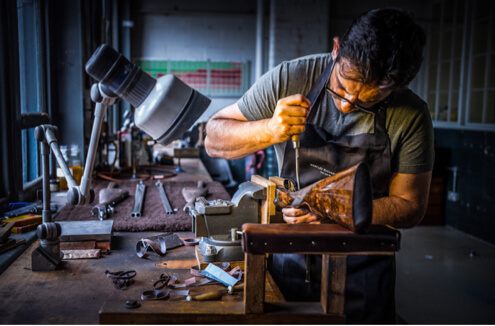
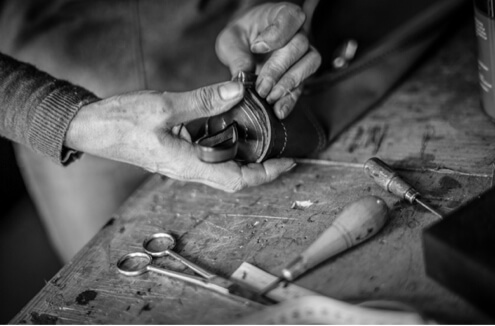


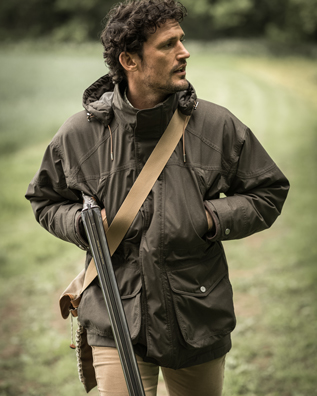
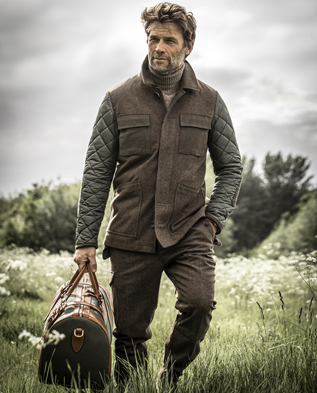
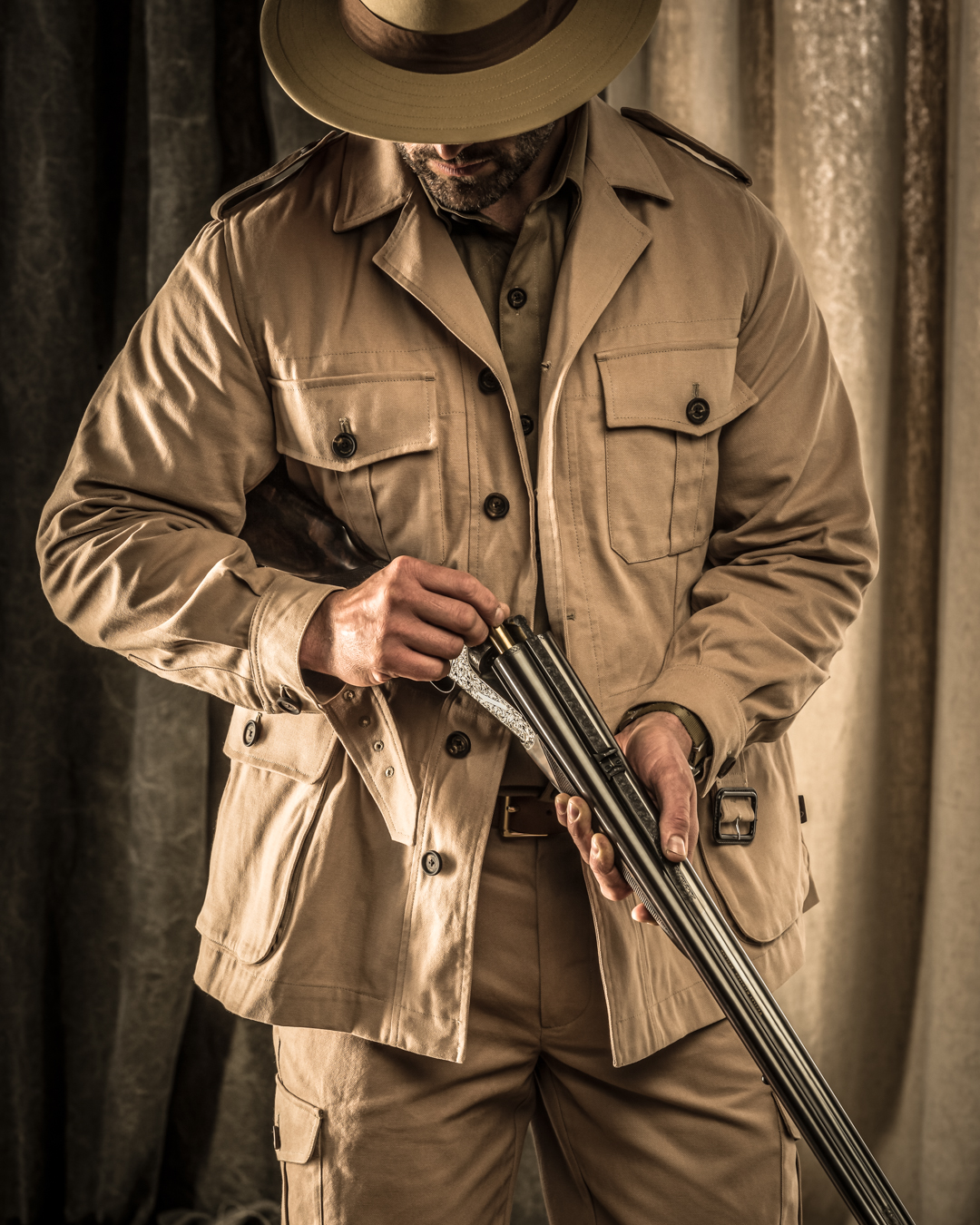
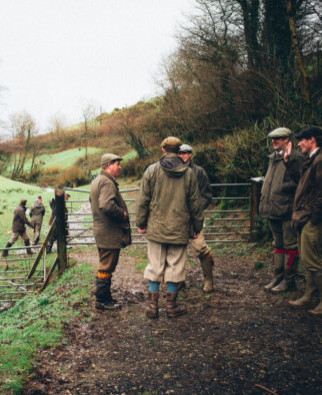
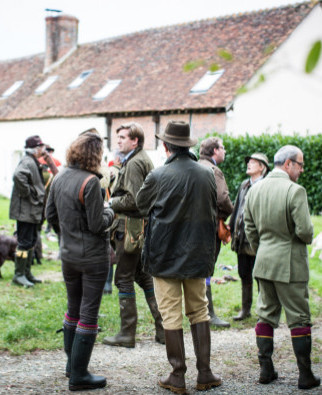
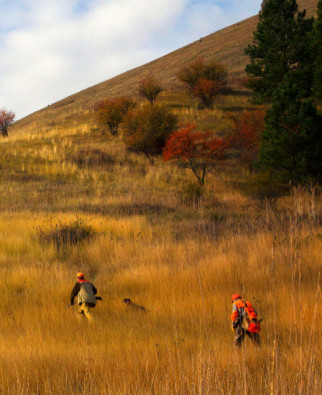

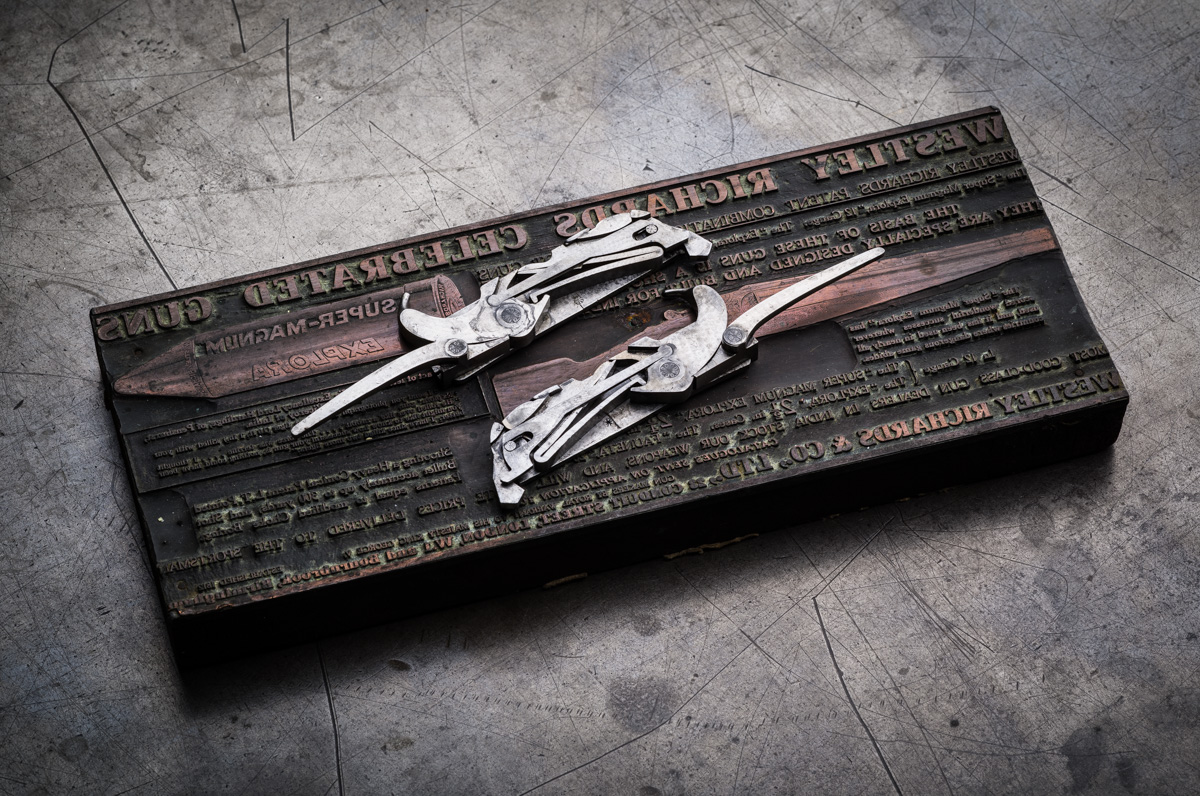
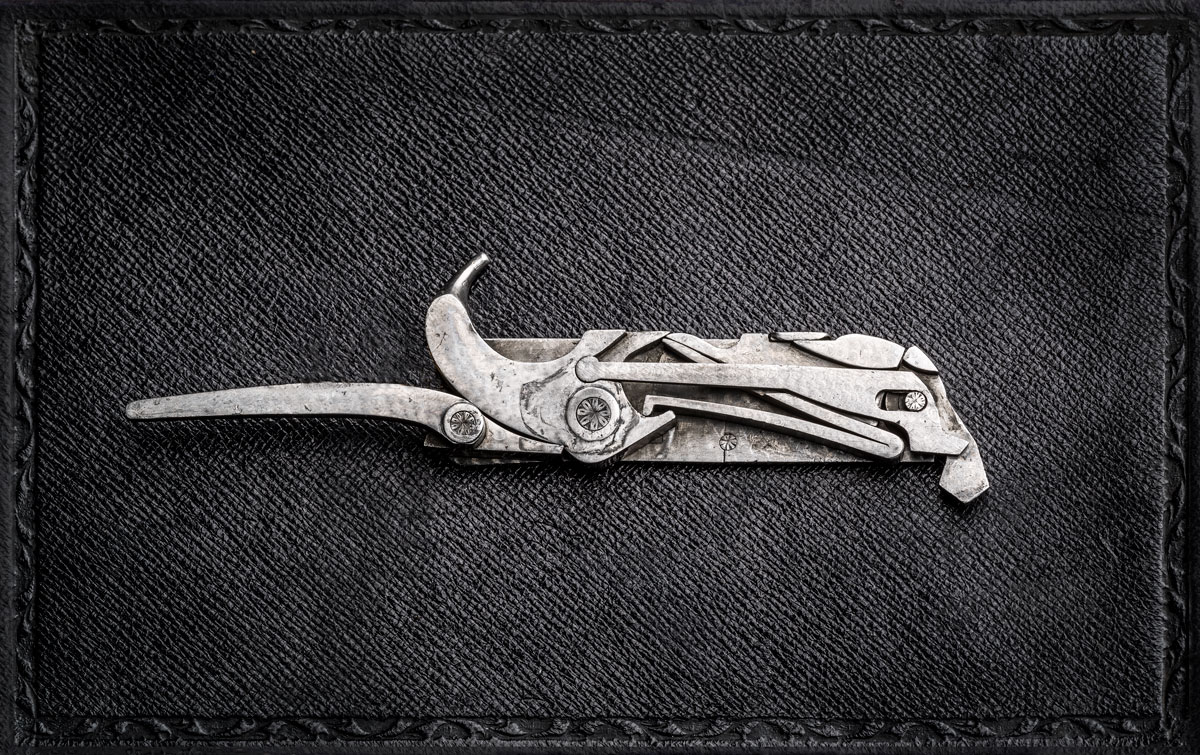
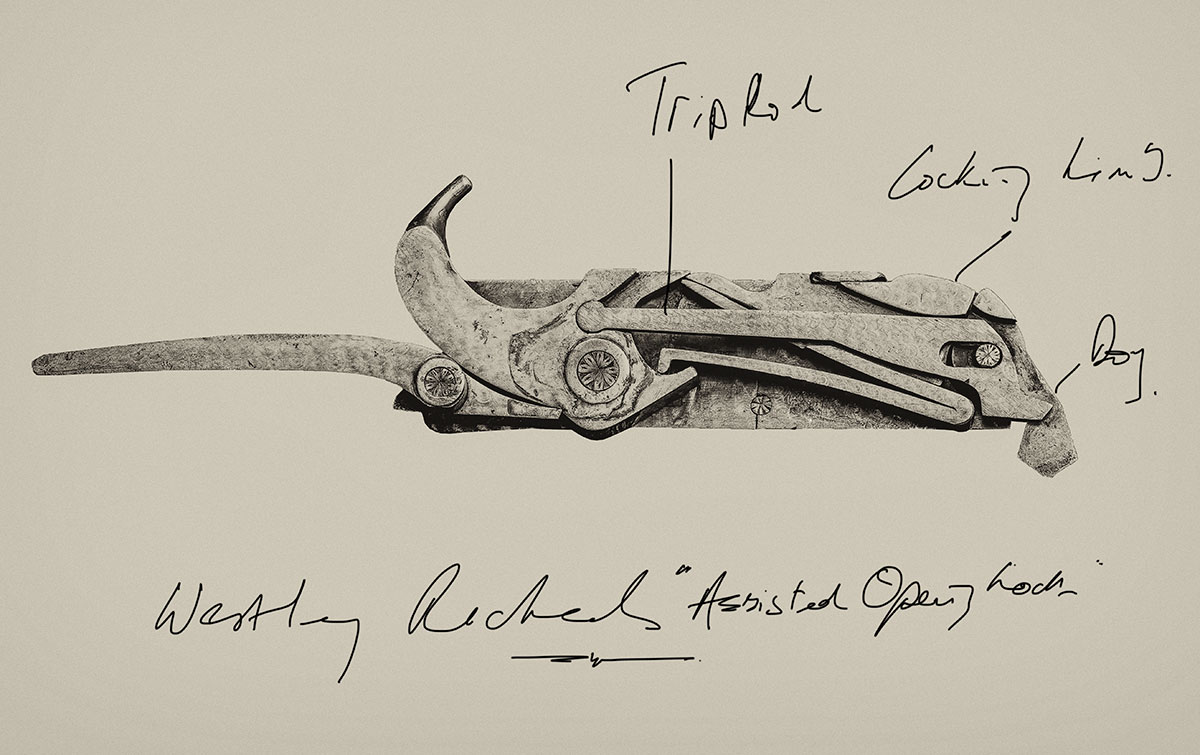



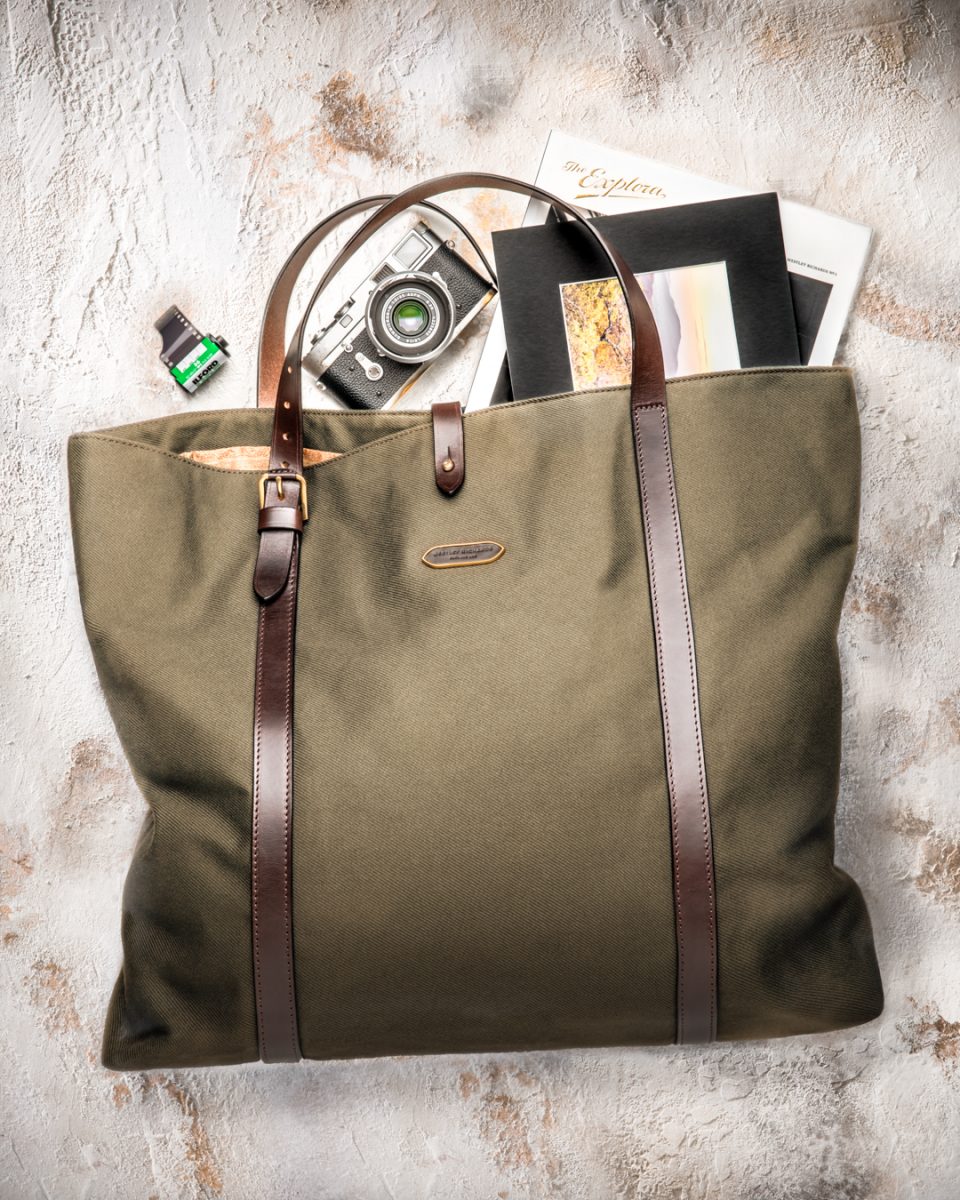


Larry on May 25, 2016 at 4:18 pm
Interesting design! I suppose some things are best left simple!
Mims Reed on May 25, 2016 at 6:35 pm
Say What?
Simon Clode on May 25, 2016 at 6:56 pm
Ha Ha, 2 confused!
Ken Hill on May 25, 2016 at 8:25 pm
Some things are better left unexplained to us non-technical people!
Ken
Djamel on May 27, 2016 at 1:02 am
Bonjour.
Thank you for these shares, always very pertinent and very interesting.
Simon, you use the term "Assisted Opening" .is it the same thing as "self-opening" or it's "easy-opening", in fact,, it is to ask you if it is a true " self-opening"?
Sincerely .
Djamel
Simon Clode on May 27, 2016 at 1:06 am
In a way they are the same. I would call a Purdey 'self opening' as it snaps open when the lever is opened. A Holland and our sidelock 'assisted opening' as it is a softer approach not the full power of mainsprings. The droplock method here is more like the Purdey relying on the power of the mainspring so 'self opening' perhaps!
Djamel on May 27, 2016 at 1:10 am
Merci you for your quick reply Simon.
Cordialement
Djamel
Matthew Schmidt on May 27, 2016 at 8:26 pm
Very interesting and a great find. I would have though that a feature like that would have been snapped up by a lot of customers. It certainly would not be difficult for you to manufacture these days, especially with CNC wire cutting and spark eroding. It would be great to see some new guns with those locks.
Waidmannsheil.
James Grinyer on May 29, 2016 at 4:04 pm
Simon, as ever the 'gun freak' , can I enquire as to whether this gun is marked with a patent number for the lock work??? I seem to recall Ken mentioning this system but could never imagine how it would ever be achieved!!! Fantastic ingenuity from the 'old gun men' trying to create systems that did not infringe on each other's patents..... And of course incur royalty fees......!!!! Regards, James.
Simon Clode on May 29, 2016 at 5:52 pm
No, I don't believe it was, and I doubt this would have been patented. There may be an update to this as Ken had some ideas and called me.
Djamel on June 1, 2016 at 5:24 am
Bonjour
This system is designed by Thomas Garwood in 1933.
Cordialement
Djamel
Simon Clode on June 1, 2016 at 1:14 pm
Thank you!
Vic Venters on June 3, 2016 at 9:51 am
Damn good thing you did not ask me! I would just have called someone like Ken Halbert or Richard Tandy then pretended that I knew how it worked ... ;-) Fascinating though. Would it be worth reviving?
Simon Clode on June 3, 2016 at 10:06 am
NO! NO! & NO!
Not even considering!!